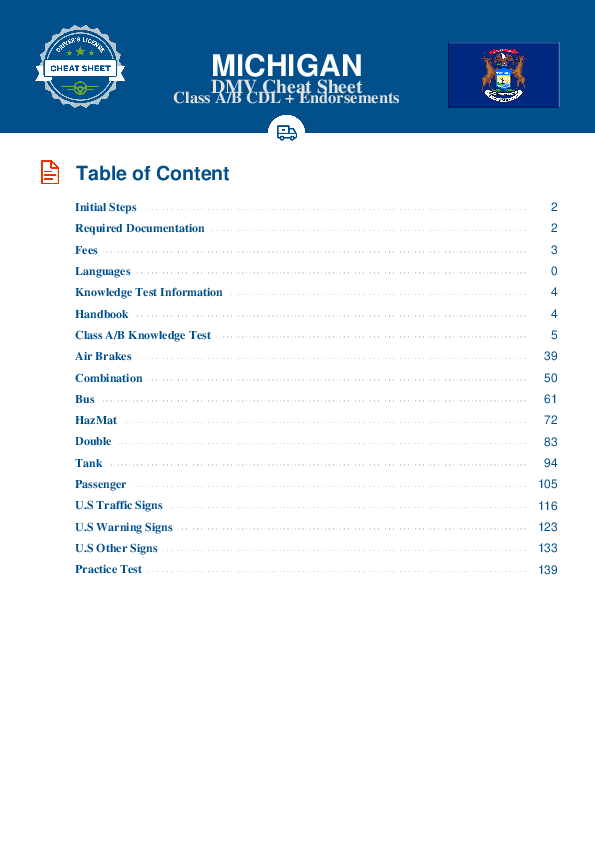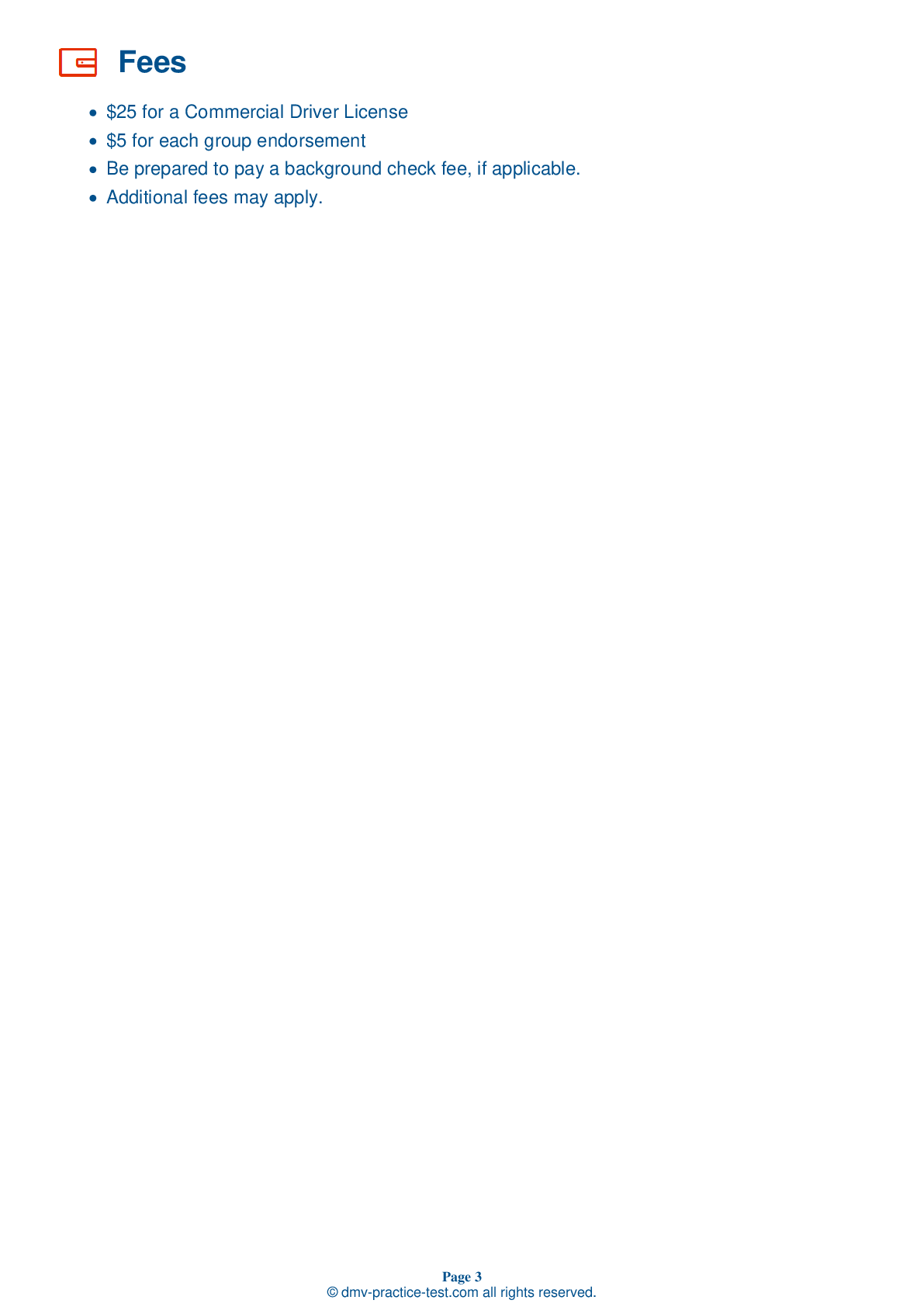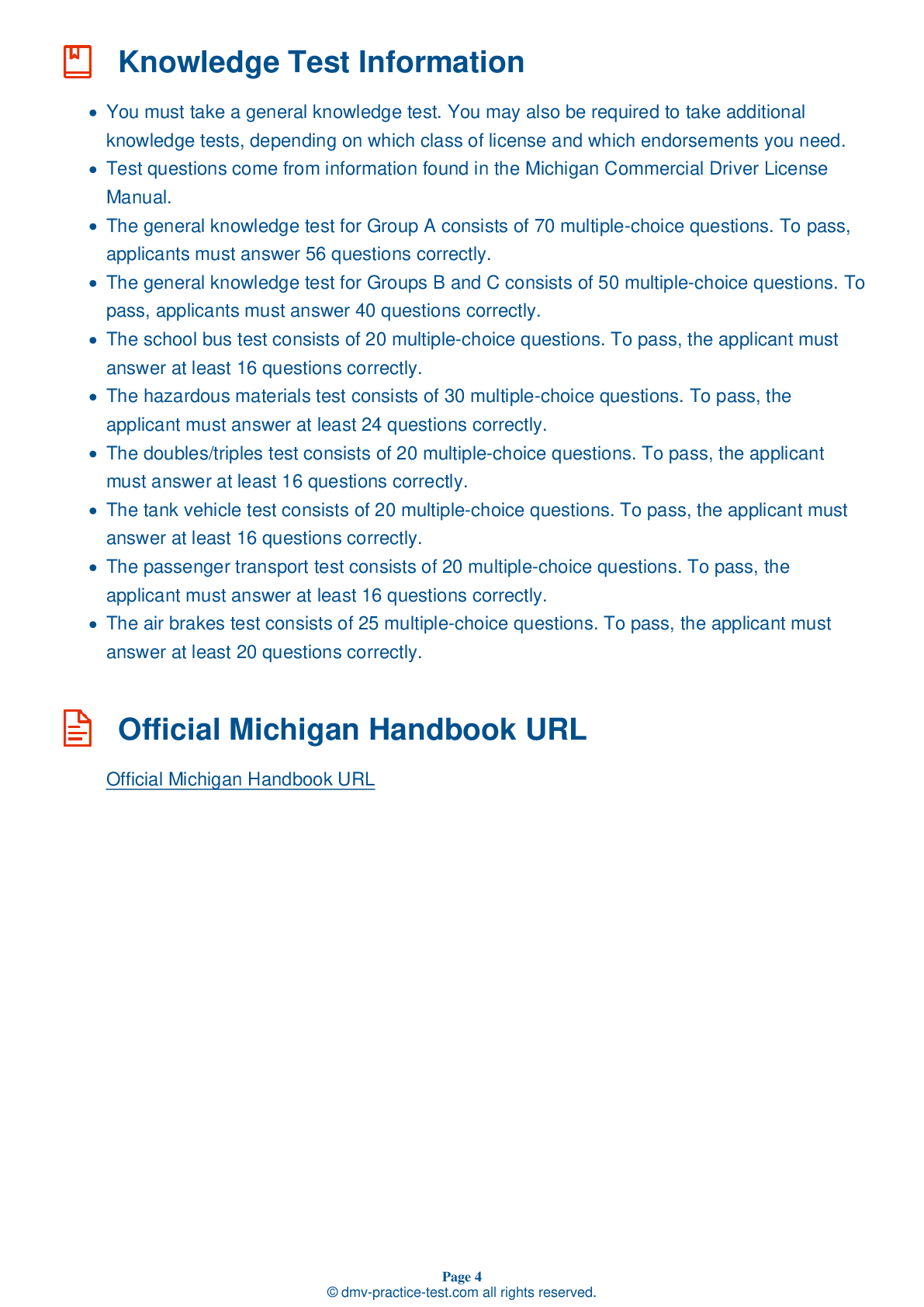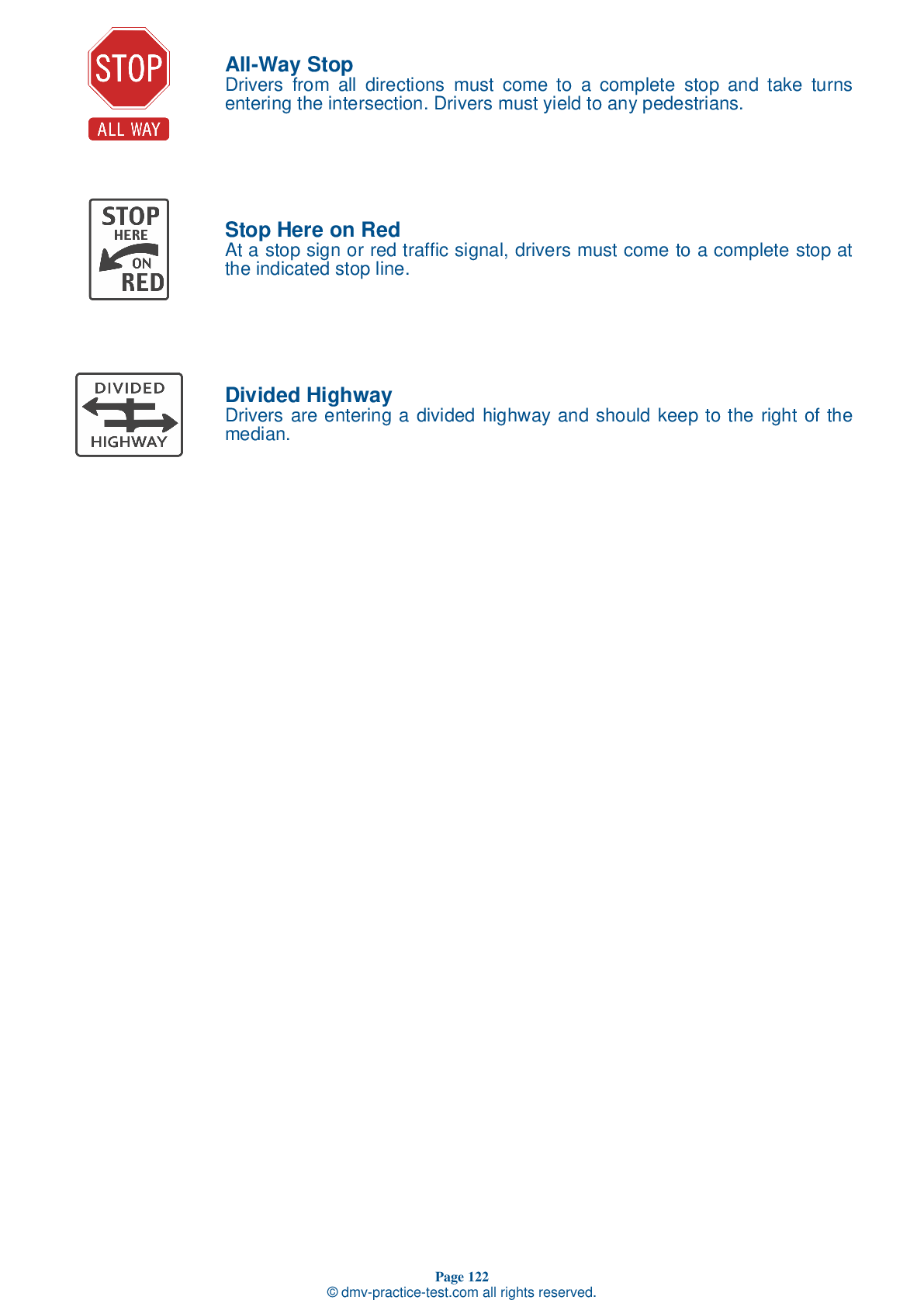HazMat #2
Hazmat Test | Michigan 2026 #2
On our website, we provide FREE practice - CDL hazmat test online! The official exam test consists of several obligatory parts, with all of them checking your knowledge of different blocks of road rules. If you need to obtain a MI CDL hazmat endorsement in 2026, practice as much as possible. Free sample tests published on our website will help you check and improve your knowledge and boost your grades. Please bear in mind that Michigan requirements for issuing a hazmat endorsement for CDL may vary from those established in other states.
30
24
20
1 . When carrying Division 1.1, 1.2, or 1.3 explosives, your vehicle should not be:
Except when parking briefly to perform necessary functions for vehicle operation (such as refueling), never park a vehicle carrying Division 1.1, 1.2, or 1.3 explosives within 300 feet of a bridge, tunnel, or building. Never park such a vehicle within five feet of the traveled portion of the road.
2 . In addition to reading the manual, the best way to learn about transporting hazardous materials is to:
While the manual includes all of the information required to pass the hazardous materials knowledge test, you should consider reading the manual as only the first step to learning about the topic. You can learn more by reading and understanding the federal and state rules about the transportation of hazardous materials, as well as by attending hazardous materials training courses.
3 . If you are transporting hazardous materials and the cargo is on fire, you should:
Fighting a hazardous materials fire requires special training and protective gear. Unless you have the proper equipment and training, do not try to fight a hazardous materials fire yourself.
4 . The only way to effectively check your tire pressure is:
You must examine each tire on a motor vehicle at the beginning of each trip. The only effective way to check tire pressure is by using a tire pressure gauge.
5 . If you are transporting hazardous materials and the cargo catches on fire, you should:
Fighting a hazardous materials fire requires specialized training and equipment. Unless you possess these yourself, it is best to let emergency personnel deal with the fire.
6 . In general, before loading or unloading any flammable liquids, an engine should be:
Before loading or unloading a tank with flammable liquids, you should turn off the engine, unless running the engine is necessary to operate a pump. Ground the tank before opening the filling hole and maintain the ground until after closing the filling hole.
2026 Michigan | Frequently Asked Questions
A CDL Class A license in Michigan allows the holder to operate any combination of vehicles with a Gross Combination Weight Rating (GCWR) of 26,001 pounds or more, provided the Gross Vehicle Weight Rating (GVWR) of the vehicle(s) being towed is in excess of 10,000 pounds. This typically includes tractor-trailers, truck and trailer combinations, and flatbeds.
A Class A CDL license in Michigan permits the holder to operate vehicles such as tractor-trailers, truck and trailer combinations, tanker vehicles, livestock carriers, and flatbeds. Essentially, it covers any combination of vehicles with a Gross Combination Weight Rating (GCWR) of 26,001 pounds or more if the towed vehicle exceeds 10,000 pounds.
To obtain a Class A CDL license in Michigan, you must be at least 18 years old (21 for interstate driving), have a valid Michigan driver's license, pass a vision test, and complete a self-certification of medical fitness. You also need to pass written knowledge tests and a skills test, which includes a pre-trip vehicle inspection, a basic controls test, and an on-road driving examination.
In Michigan, you must be at least 18 years old to qualify for a Class A Commercial Driver's License (CDL) for intrastate driving (within Michigan only). However, to drive interstate (across state lines) or to haul hazardous materials, you must be at least 21 years old.
While not always required, specific endorsements can be added to your Class A CDL license to permit the operation of certain vehicles or transport of specific goods. These include T (Double/Triple Trailers), P (Passenger), N (Tank Vehicles), H (Hazardous Materials), and X (Combination of Tank Vehicle and Hazardous Materials). Each endorsement requires passing additional knowledge tests.
The Class A CDL skills test in Michigan encompasses three parts: a pre-trip inspection, a basic vehicle control test, and an on-road driving test. The pre-trip inspection tests your ability to assess the safety of your vehicle. The basic control test evaluates your ability to maneuver and control the vehicle. The on-road test assesses your ability to safely operate the vehicle in various traffic situations.
Yes, certain limitations can be imposed on Class A CDL license holders in Michigan. These are called restrictions and are marked on the license. For example, an "E" restriction prohibits manual transmission use, an "L" restriction prohibits operation of vehicles with full air brakes, and a "Z" restriction prohibits the operation of a commercial motor vehicle equipped with any braking system operating fully on the air brake principle.
In Michigan, the written Class A CDL test is primarily administered in English, as federal regulations require commercial drivers to read and speak English. However, some locations may offer the test in other languages. It's recommended to contact your local testing center for specific information about language accommodations.
Yes, you can request accommodations for the Class A CDL written test if you have a disability. Michigan's Department of State is committed to providing accessible testing. The exact accommodations depend on the nature of your disability. Contact your local testing center in advance to discuss your needs and make appropriate arrangements.
Yes, if you don't pass the Class A CDL written test in Michigan, you can retake it. However, you must wait at least 24 hours before retesting. If you fail the test three times, you must wait 30 days from the last attempt to retake it. There may be additional fees for retesting.



